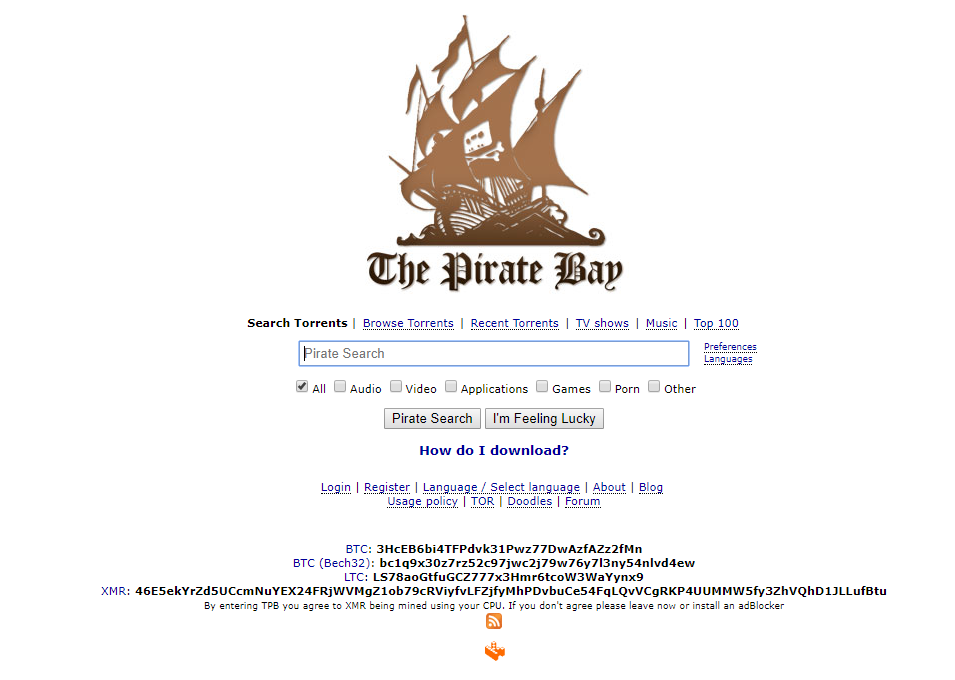The Peer-To-Peer Revival
Peer-to-peer technology is nothing new. Services built around peer-to-peer models are now labelled as the sharing economy, which induces positive connotations and helps to wildly inflate company valuations when they IPO. Another term that is now a media darling is blockchain – the underlying technology of Bitcoin and other cryptocurrencies. Bitcoin itself is still viewed with suspicion, having built a reputation as a facilitator of illicit trade on the dark web, being the payment method of choice for the original Silk Road. The other major online P2P model, the BitTorrent protocol has been regarded with similar levels of distrust after years of causing havoc to the media and creative industries. Now, the protocol is synonymous with copyright infringement – digital piracy.
Blockchain technology has flipped the perception of the digital P2P model, from file-sharing and illicit trade enabling social pariah to a mainstream mode of business ushering in a new wave of technological advancement. To maintain the perception, blockchain and Bitcoin must always be distinguished in the media, to ensure future blockchain applications are not tarnished with the Bitcoin brush. Firewalling a negatively perceived implementation from the underlying technology is a huge win for technologist, leaving open an avenue of innovation. Unfortunately, early file sharing technology never managed to achieve this, leading to a homogeneity of streaming services with little differentiation amongst the offerings. Digital markets thrive best when they build on real world norms, of which sharing and lending have long served to distribute culture. But culture and technology marches on, blockchain is leading the resurgence in digital decentralisation and P2P distribution models. Even social media monolith Facebook is planning to launch its own cryptocurrency.
This article will not discuss how the ultimate peer-to-peer technology changed the perception of the P2P model so drastically or whether blockchain is the most disruptive technology since the internet or even if Facebook’s foray into the world of crypto will end up like the Facebook phone. Only 56% of the world have internet access, the true impact of a global network of networks has not yet been fully realised. Blockchain is still in its infancy, applications outside of currencies (or assets as some prefer to call) will certainly reach the mainstream. To what extend remains to be explored and relished. The usual situation of those overselling and those on the other side writing-off the new technology will both prove to be wrong.
We always overestimate the change that will occur in the next two years and underestimate the change that will occur in the next ten.
Bill Gates
Blockchain & Intellectual Property
Everyday a new blockchain IP protection solution reaches the market; mostly in the fields of track & trace or smart contracts for digital rights management. It seems blockchain solutions are advertised as often by lawyers as by tech companies. Opportunities rarely exist without risk. The flip side of the digitisation coin for rightsholders has been the proliferation of piracy and counterfeits sold online. Undoubtedly, blockchain represents as much of a threat to current models of IP commercialisation as it offers opportunities for innovation and growth. In light of Gate’s sage words, this article will avoid trying to balance the two sides of the coin and instead enter the realm of conjecture; speculating about a confluence of blockchain applications and the culture of piracy. The aim is to vaguely outline what a potential worst-case scenario might look like in terms of digital rights protection. The simple answer is – The Pirate Bay plus an incentive for seeders to seed.
Blockchainifying The Pirate Bay
The Pirate Bay has transformed into a cause. Positioned as more than just criminals making money from infringing the intellectual property rights of others. The danger of the platform is from the cultural influence, the politicisation of piracy into a freedom of speech argument. Kim Dotcom and Sci-Hub have both politicised their strands of mass-scale commercial intellectual property infringement, however, neither resonates with the pirate community in the same manner as the ship with the tape and crossbones marked sail. Very few illicit (or legal) digital services have managed to engender a comparable cause, one with such a polarising impact on the public discourse of cyber regulation and the societal relevance of intellectual property in the digital age.
Torrent platforms no longer dominate the piracy landscape as they had once before; with increasing internet speeds, users have become accustomed to being able to instantaneously stream what they want. The Pirate Bay may no longer be issue #1 by damaged caused (in terms of number of users accessing copyright infringing content) but the resiliency of the platform connects directly into fears of ‘censorship resistant’ application being used to facilitate digital piracy.
Before turning to possible blockchain applications which could potentially evolve into a blockchain piracy haven, a few words from Vitalik Buterin, founder of the Ethereum platform. Buterin has openly discussed areas mooted to be disrupted by blockchain that are not suitable for the technology:
The two biggest no-no’s are probabaly private data and too much data.
Vitalik Buterin
And again, regarding file size / scale limitations:
Putting big hulk PDF, music or video files onto a chain is a terrible idea. The blockchain is just not big enough to hold that stuff.
Vitalik Buterin
It should be obvious that if a mere PDF is too big for the blockchain, the media industries have nothing to worry about. It is likely Buterin will be proved correct, although, some applications are being developed which suggest it may be possible.
Potential Blockchain-Piracy Cocktail
The Ethereum platform has led to a range of applications to be built on the blockchain, enabling new and innovative concepts to be tested. Most, however, will not be commercial successes, but may point to the future direction of the technological shift. Decentralised video platforms are already available, with YouTube clone DTube providing a familiar experience and Livepeer offering live streaming capabilities.
Key application IPFS – InterPlanetary File System – is aiming to create a fully distributed file system. In a way, IPFS mirrors the torrent model, with each user contributing to the platform. Torrent files work best when a community is built, ensuring enough users to provide all the parts of the content to the user requesting the download. Some torrent platforms became invite-only, with members having to give back at least as much as they take. The problem being – there is no incentive for downloaders to subsequently upload files for others once their download completes. Enter Filecoin. Being developed by the same organisation as IPFS – Protocol Labs – which is “focused on how we store, locate and move information”.
What If BitTorrent Users Could Earn Bitoin by Seeding?
Filecoin is to serve as the incentive for users to give back. Essentially, Filecoin provides a monetary reward for users to rent hard drive space to the network. Each user providing space acts a node to which users requesting specific content can connect to. Nodes providing disk space ‘seed’ content, and financially benefit from doing so. The only parties in the torrent model making money are the torrent sites and release groups providing the content. The torrent sites earn through ad revenue, crypto-donations and ‘borrowing’ the CPU of users to mine Bitcoin. A massively distributed network whereby all nodes can generate passive income simply by ‘seeding’ content changes the piracy landscape dynamics. As seen with Bitcoin, mining farms will commercialise the opportunity.

Another area with potential to reshape the internet as we know it is ‘censorship free domains’. The promise of uncensorable websites is far off, but aspirations at creating a decentralised Wix-type platform is within the realm of possibility when combined with the work of Protocol Labs. Organisations such as Unstoppable Domains provide limited capabilities, mainly useful to create memorable domain names to send crypto payments to. The piracy implications are already known to Unstoppable Domains, with references to different scenarios which could occur already being discussed by the project founders. A content filter layer has been mentioned to keep the platform clean of illegal content – the consequence of receiving venture capital investment to fund the project. Although, the founders have suggested the consensus will determine what is illegal.
Just as Bitcoin required Satoshi Nakamoto to combine elements of existing technologies into a novel concept, a cocktail of projects known to be in development hints that piracy could migrate to the blockchain. A decentralised domain name system combined with a decentralised file system which incentivises participation to create the network effect through a privacy focused cryptocurrency sounds ominous. Most certainly farfetched at this moment in time. But, underestimating the change that might occur in the next ten years would be done at the peril of the media industries.



